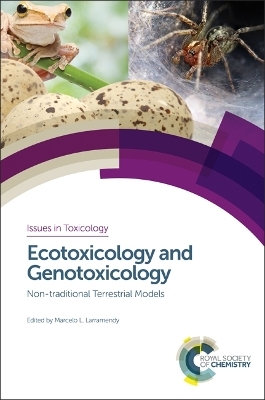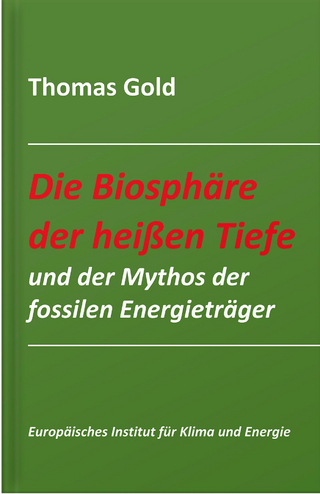
Ecotoxicology and Genotoxicology
Royal Society of Chemistry (Verlag)
978-1-78262-811-8 (ISBN)
The potential impact of anthropogenic pollutants such as agrochemicals on the environment is of global concern. Increasing use of certain compounds can result in contamination of food, water and atmospheric systems and in order to combat this pollution it is important to be able to accurately monitor the short and long term effects.
This book describes the latest non-traditional terrestrial species models used as indicators of the toxic effects of environmental pollutants. The book enables understanding of the effects of pollutants in non-target species, and therefore enables analysis of the effects on ecosystems.
This book will be of interest to anyone interested in developing new biomarker species with high degrees of ecological relevance. It will serve as a useful resource for regulatory and research toxicologists, particularly those interested in soil screening and the effects of pollutants on wildlife and insects and their use as biological indicators.
Michael D. Waters, holds a Ph.D. in Biochemistry from the University of North Carolina School of Medicine at Chapel Hill and a B.S. in Pre-medicine (Chemistry and Biology) from Davidson College. He is a former government scientist with more than 35 years of experience in research and research management positions at EPA and NIH/NIEHS and six years of private sector experience as Chief Scientific Officer at Integrated Laboratory Systems, Inc. His research interests have centered on the evaluation of chemically-induced mutations and altered molecular expression in the etiology of genetic disease. He is a widely-published scientist having published well over 100 peer-reviewed in authoritative international scientific journals. He has edited Mutation Research-Reviews for nearly 20 years and has held adjunct professorships at both the University of North Carolina and at Duke University for many years. He served as President of both the Environmental Mutagen Society and the International Association of Environmental Mutagen Societies (now the Environmental Mutagenesis and Genomics Society and the International Association of Environmental Mutagenesis and Genomics Societies, with more than seven thousand members worldwide). The databases he has developed and a number of his publications are recognized as important advances that have significantly impacted the fields of genetic toxicology, carcinogenesis, toxicogenomics, and risk assessment. Universidade Luterana do Brasil, Brazil
The Use of the Non-Standardized Invertebrates in Soil Ecotoxicology;
The Use of Spiders in the Assessment of Cellular Effects of Environmental Stressors;
Aporrectodea longa (Annelida, Lumbricidae): a suitable earthworm model for genotoxicity evaluation in the environment;
Higher-tier Multi-species Studies in Soil - Prospects and Applications for the Environmental Risk Assessment of Pesticides;
Evaluation of the genotoxic potential of contaminated soil employing the snail Helix aspersa;
The direct-developing frog Eleutherodactylus johnstonei (Eleutherodactylidae) as biological model for the study of toxic, cytotoxic, and genotoxic effects of agrochemicals;
The yellow-legged gull Larus michahellis (Charadriiformes, Laridae) as a model species in ecotoxicology: application in monitoring and toxicity assessment of environmental pollutants;
The lizard Salvator merianae (Squamata, Teiidae) as a valid indicator in toxicological studies;
The terrestrial lizard Podarcis sicula as experimental model in emerging pollutants evaluation;
The use of terrestrial life-stages of European amphibians in toxicological studies;
South American Cowbirds as Avian Models for Environmental Toxicity Testing;
Impacts of Agriculture and Pesticides on Amphibian Terrestrial Life Stages: Potential Biomonitor/Bioindicator Species for the Pampa Region of Argentina
| Erscheinungsdatum | 23.06.2017 |
|---|---|
| Reihe/Serie | Issues in Toxicology ; Volume 32 |
| Verlagsort | Cambridge |
| Sprache | englisch |
| Maße | 156 x 234 mm |
| Gewicht | 688 g |
| Themenwelt | Naturwissenschaften ► Biologie ► Biochemie |
| Naturwissenschaften ► Biologie ► Genetik / Molekularbiologie | |
| Naturwissenschaften ► Biologie ► Ökologie / Naturschutz | |
| ISBN-10 | 1-78262-811-8 / 1782628118 |
| ISBN-13 | 978-1-78262-811-8 / 9781782628118 |
| Zustand | Neuware |
| Informationen gemäß Produktsicherheitsverordnung (GPSR) | |
| Haben Sie eine Frage zum Produkt? |
aus dem Bereich


